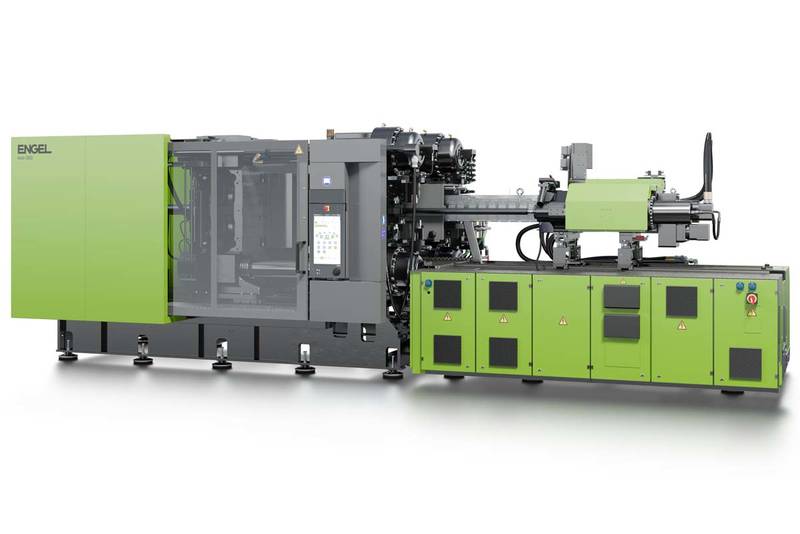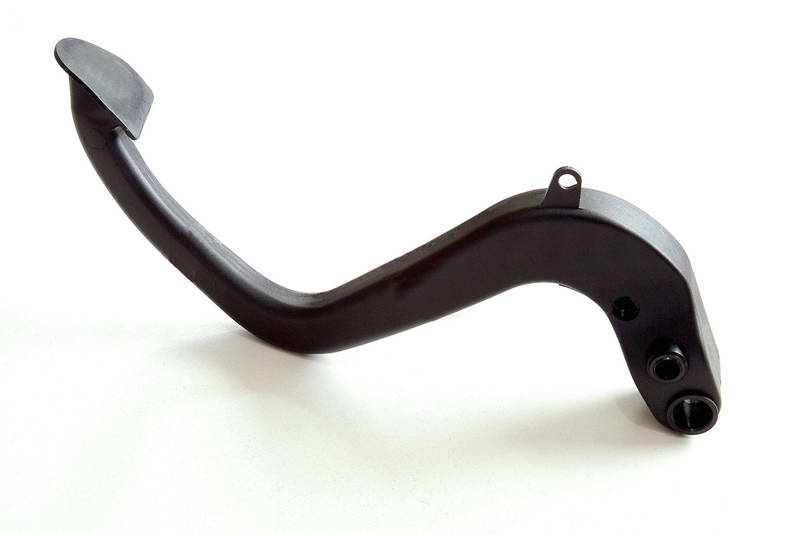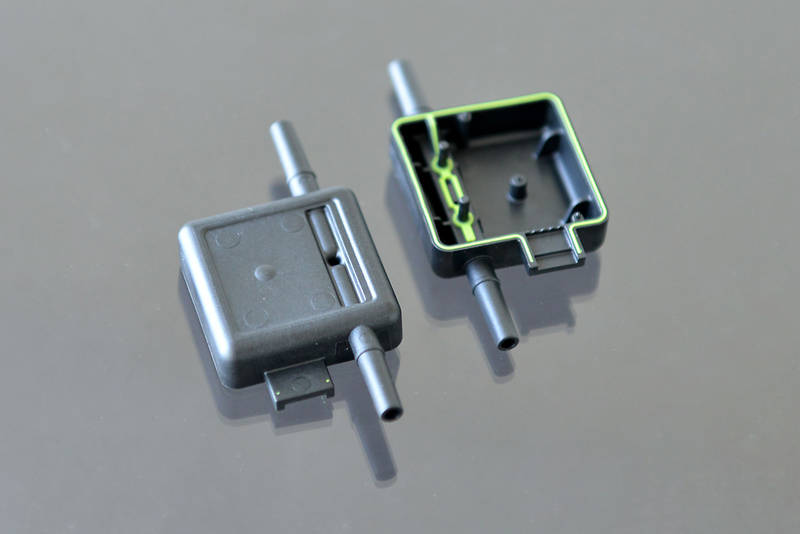| MAIN |
ENGEL at Chinaplas 2016| Subj: Press-releses  Productivity, quality and flexibility are decisive for a competitive edge. But to achieve optimal results, it is no longer enough to deploy the best injection moulding equipment; it is all about leveraging its maximum potential. This is the fundamental goal at the focus of the fourth industrial revolution that has come to be known as Industry 4.0. "Industry 4.0 is no longer just a buzzword, but rather a trend that is getting increasing attention among our customers," says Gero Willmeroth, Sales and Service President at ENGEL Machinery (Shanghai) prior to Chinaplas 2016. "We expect that injection moulding processors will inform themselves at the exhibition about the possibilities and opportunities that Industry 4.0 opens up for them. We view ourselves as a partner helping our customers to make the best possible use of these opportunities. For ENGEL, Industry 4.0 is not a new issue, but is already long-established daily practice in many areas. The trust that processors place in the ENGEL solutions in this area is therefore also very high right from the start." Under the inject 4.0 brand, ENGEL is bundling the products and services that are already available today together with coming products and services that help turn a manufacturing operation into a smart factory. With the help of the networking and integration of production systems, the systematic exploitation of process and production data and the use of decentralised, intelligent production systems, the manufacturing processes in a smart factory continuously optimise themselves and make it possible to react very flexibly to the ever more quickly changing requirements. At its stand, ENGEL is presenting just what this can look like for all three areas of the smart factory – smart production, smart services and smart machines. Numerous live demonstrations bring some transparency into the often quite intangible world of Industry 4.0 and make the factory of tomorrow a real experience today.  During the four days of the trade fair, the parameters from all the production cells in operation at the ENGEL stand are gathered by a central master computer where the ENGEL e‑factory MES solution is running. It provides features for scheduling jobs, querying the status of the injection moulding machines, and creating quality reports and documentation (smart production). At the same time, the exhibit visitors are given insights into how maintenance and servicing tasks can be completed online via remote connection, thus saving the processor time and costs and increasing the machine availability of the production cell (smart services). There can be no doubt that the machines at the ENGEL trade fair stand work in a smart way (smart machines). For example, the iQ weight control and iQ clamp control software solutions enhance process stability by continually analysing the plasticising and moulding process, automatically adjusting quality-relevant parameters in case of deviations from target values. The inject 4.0 products that lead to optimal overall results differ for each injection moulding task, each company and each location – another fact that will become clear at the ENGEL trade fair stand. "The modular concept allows our customers to start with a solution adapted to their individual requirements at any time and then gradually develop it further," as Willmeroth emphasises. "There is no need to start with a full solution right from day one. Optimising manufacturing processes starts with the individual machines and can reach all the way up to a global production network."  Integrated system solutions including process technology Founded in 1945, ENGEL has steadily developed over the course of its history from a manufacturer of injection moulding machines to a system expert. As a single source supplier, the family-owned company provides turnkey manufacturing cells for sophisticated applications which in addition to injection moulding machines also include automation, process technology, the mould and further peripheral equipment. Besides the injection moulding machines, various types of robots and process technologies also stem from ENGEL's own development. Among other things, ENGEL demonstrates its great system solution and technology expertise at Chinaplas with an application for the automotive industry. Clutch pedals are being manufactured with the ENGEL watermelt method on an ENGEL duo 350 large-size machine. Thanks to the targeted formation of a hollow structure by means of water injection technology, raw material is saved, the component weight decreases and the cycle time drops. Furthermore, the injection of water into a cavity partially filled with plastic melt ensures a uniform wall thickness throughout the clutch pedal and no sink marks despite the complex part geometry. This also results in a very precise part surface. Together with its system partner PMEfluidtec (Ettenheim, Germany), ENGEL offers tailor-made turn-key solutions for water injection technology worldwide. "In the meantime, we have installed several ENGEL watermelt production cells for customers in China," as Wilmeroth reports. "The method makes it possible to achieve a fabrication process that is not only very efficient, but also sustainable. The issue of sustainability in particular is growing greatly in importance in China." In order to provide optimal local support for its customers, ENGEL Machinery (Shanghai) has established its own department for application technology. Maximum performance, minimal unit costs There is hardly another industry in which the unit costs are subject to greater pressure than in the packaging industry. Competitive production is only possible when maximum throughput, a stable process and a high degree of process integration all come together. An increasing number of processors are turning to in-mould labeling technology so that for example ready-to-fill food containers come directly out of the injection moulding machine. IML makes a high-quality decoration economical, even in the production of smaller batch sizes. In order to take full advantage of the efficiency potential of IML integration, the injection moulding machine, the mould and the handling of the labels and finished products must be perfectly coordinated with each other. For this, ENGEL has built up a worldwide network of partner companies. The ENGEL e-mac 180 injection moulding machine being presented at Chinaplas is operating with a 4-cavity mould from CNN Plastic System of New Taipei City in Taiwan, producing oval bowls that are for example used for convenience meals, and the IML automation has been realised by YET Engine Automation – also located in New Taipei City, Taiwan. "The collaboration with local partners makes it possible for us to guarantee high cost-efficiency for our customers, even for very sophisticated, innovative technologies, and also keep the delivery times for the complete production cell very short," emphasises Willmeroth. High productivity requires a reliable high-performance machine. The all-electric ENGEL e‑mac is a high-performance, high-precision, compact and at the same time energy-efficient solution. From injecting and metering to mould and ejector movements, all drives in the ENGEL e-mac are servo-electric. This guarantees the best possible precision and process stability while maximising the effectiveness of the machine as a whole. The drives are operated by a modern axis system solution involving a stabilised intermediate circuit, with the braking energy being recovered and fed back into the grid. The synchronous movements of the drive axes ensure short cycle times. With acceleration of up to 20 m/s², the injection axis of the ENGEL e-mac is among the fastest worldwide. Reliably master LIM multi-component processes Process integration is a key factor for top competitiveness. Besides the integration of process steps upstream and downstream of the injection moulding process into the manufacturing cell, the parallel processing of different materials also offers particularly great potential for more efficiency. The fabrication of housing shells for flow metering devices reveals how this potential can be optimally exploited. On a tie-bar-less ENGEL e-victory 120 combi injection moulding machine with an integrated ENGEL viper 20 linear robot, four housing shells are first injection-moulded of thermoplastic in a 4+4 cavity mould. These are transferred to the second set of cavities by the robot where a seal of liquid silicone (LSR) is subsequently applied directly in the same mould. While the soft components of one set of housings are being processed, the next housings of thermoplastic are already in progress in the lower half of the mould. "Having the seals moulded directly onto the housings not only increases production efficiency, but also product safety, because the thermoplastic and the elastomer then form one inseparable unit," says Willmeroth. The processing of two diverse materials in one step is not the only challenge presented by the manufacture of the housing parts here; handling the liquid silicone reliably is also difficult, particularly because its low viscosity makes it hard to work with. Important demands placed on the processing of liquid silicone rubber (LSR) are that it must be low in burrs and require no post-processing. Various factors contribute to ensuring that these demands are fulfilled reliably. The servo-electric injection units and the tie-bar-less clamping unit of the ENGEL e-victory machine for example help achieve very high precision and process consistency levels. The patented force divider ensures that the moving mould mounting platen follows the mould exactly while clamping force is being built up. It guarantees high platen parallelism and distributes the clamping force evenly across the entire platen face. All cavities are therefore held closed with exactly the same force, resulting in extremely consistent wall thicknesses as well as significantly reducing mould wear. Its tie-bar-less technology gives ENGEL a unique selling proposition unmatched anywhere else in the world. In addition to high process consistency levels, the machine concept makes it possible to achieve very fast set-up processes, compact production cells and efficient automation concepts. This will also be clearly demonstrated at the Chinaplas exhibition. The ENGEL viper robot can reach the cavities directly from the side without having to circumvent any obstacles. Faster positioning for shorter cycle times At Chinaplas 2016, the new generation of ENGEL viper linear robots is celebrating its premier in Asia. A special highlight is the new active vibration control that boosts positioning speed and thus contributes to achieving shorter cycle times. While up to now vibrations were reduced through intelligent programmed trajectories, external influences can now also be compensated for online using active vibration control. An ENGEL viper 40 double robot will demonstrate this during the four trade show days. The respective grippers hold a sleeve and a corresponding core. The two robots with a common Z-axis rotate the two parts together, inserting one inside the other and separating them again multiple times within a very short time without the sleeve and core touching each other. In addition to the active vibration compensation, another advantage ot the ENGEL viper robots comes into play: the perfect synchronisation of independent movements. Each of the twin robots has three NC and three servo rotation axes. A total of twelve axes will be controlled synchronously – which is far from exhausting all the possibilities. All ENGEL viper robots will be equipped with active vibration control starting from size 20 up to the largest ENGEL viper 120 robots with a load capacity of 120 kilograms. The transition is being implemented successively starting with the ENGEL viper 40 and 60 robots. Tailor-made solutions – produced locally The injection moulding machines presented at Chinaplas all stem from local production. Shanghai is the home of the plant for large-size injection moulding machines of the ENGEL duo model series. Injection moulding machines with small to medium clamping forces come from Pyungtaek-City in South Korea. ENGEL is the only non-Asian injection moulding machine manufacturer with multiple production plants in Asia. Decentralised local production guarantees short lead times for customers and also ensures that the products and system solutions can be flexibly adapted to regional and customer-specific requirements. In order to provide optimal on-site support for its customers, ENGEL now employs nine application technicians in China. Additionally, ENGEL has founded its own Automation Center at its large-size machine manufacturing plant in Shanghai. Exactly 30 years ago, ENGEL opened its first subsidiary on the Asian continent in Hong Kong. Besides China, ENGEL is today also represented in Asia by its own sales and service subsidiaries in South Korea, Thailand, Singapore and India. In addition, there are further sales offices, service centres and representatives. "Above all when it comes to application-specific consulting and service, close proximity to our customers is extremely important. The short distances save our customers time and costs, and speed up the project planning and commissioning of new manufacturing cells," emphasizes Gero Willmeroth. "We are therefore continuing to expand our sales and service network." ENGEL at Chinaplas 2016 in Shanghai: hall E3 stand E3E01 Source: ENGEL Previous news |
© 2002—2025 PLASTINFO